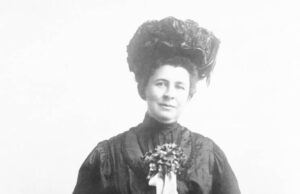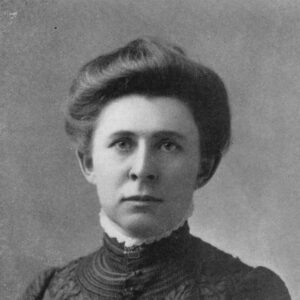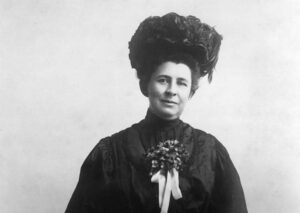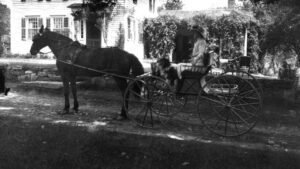Steve Weinberg
- 1997

Fellowship Title:
- The Lessons of Ida Tarbell
Fellowship Year:
- 1997

Ida Tarbell: Learning to Dig
After rejecting an opportunity to expose the predations of the Standard Oil Company in the 1880s, Ida Tarbell decided to tackle a more limited, though still ambitious, topic. She simply did not feel prepared as a journalist to tackle the biggest trust on earth, the trust that twenty years later would make her famous when she eexposed its operations. Ida Tarbell Many of her female friends had been pushing for universal suffrage. Tarbell, though a feminist in many ways—in deeds, if not words—doubted whether women could actually improve the world by winning the vote. She commented, “There had been women in public life in the past. What had they done? I had to satisfy myself before I went further with my science of society or joined the suffragists. It was humiliating not to be able to make up my mind quickly about the matter, as most of the women I knew did. What was the matter with me, I asked myself, that I could not be quickly sure? Why must I persist in the slow,

Ida Tarbell: A Reporter’s Life
Obviously intelligent and a fast learner, the 23-year-old Ida M. Tarbell quickly expanded her job description after beginning her journalism career on The Chautauquan magazine during 1880. As a result, she received a broad education on all manner of topics. Ida Tarbell She was still 22 years away from the exposé of the Standard Oil Company and John D. Rockefeller that clinched her eternal fame. She possessed few of the journalistic skills that would become apparent later. The upbeat, religion-based Chautauquan magazine seemed an unlikely place for a nascent investigative journalist. But appearances can be deceiving. The editor, Theodore Flood, surprisingly undoctrinaire, opened the pages to many, and sometimes conflicting, viewpoints. On issues of special interest to women, he advocated the vote and their entry into the clergy. Articles by contributors, male and female, favored women working outside the home, equal pay for equal work, equal access to education; other articles advocated the more traditional, stay-at-home view. During her seven years on a small staff, Tarbell edited some of those articles, forcing her to consider

The Lessons of Ida Tarbell 2
When Ida Tarbell left home in 1876 to attend Allegheny College in Meadville, Pa., she was doing more than advancing the independence of women during an era when most were denied higher education. Tarbell was also preparing herself, unwittingly, to produce the most significant work of investigative journalism in history — her exposé of the Standard Oil Company and its executive, John D. Rockefeller. Ida Tarbell Tarbell’s relentless curiosity, the most significant trait of great investigative reporters, developed during her years at college and on her first job, as she built on the intellectual foundation of her youth and adolescence. Allegheny College was not the ideal atmosphere for a female student, but Tarbell refused to be put down. She was the only female in her freshman class of 41. The sophomore class also was devoid of women. The junior class had two, as did the senior class. Ten women had graduated by the time Tarbell arrived, but they had failed to make much of a mark in the college’s atmosphere. For example, every professor still

The Lessons of Ida Tarbell 1
It does not look like anything especially impressive today. It sits on an out-of-the-way shelf, one of millions of volumes in a cavernous university research library. Its green cover has faded after 93 years of heavy use, occasional abuse and, ultimately, lack of use. It is mentioned in Twentieth Century America history courses on college campuses. But hardly anybody alive has read it from beginning to end, all 815 pages of dense type. Ida Tarbell That is a shame, because the book is probably the greatest work of investigative journalism ever written. “The History of the Standard Oil Company” is the unprepossessing title. By Ida M. (for Minerva) Tarbell. Born during 1857 in rural Pennsylvania, Tarbell was 43 when she started researching the world’s most powerful corporation and its chief executive, John D. Rockefeller. By the time she started, Tarbell had won a measure of fame for her serialized biographies in McClure’s Magazine on Napoleon Bonaparte and Abraham Lincoln. Finding new material on those historical figures had been difficult. Rockefeller presented a different kind of
